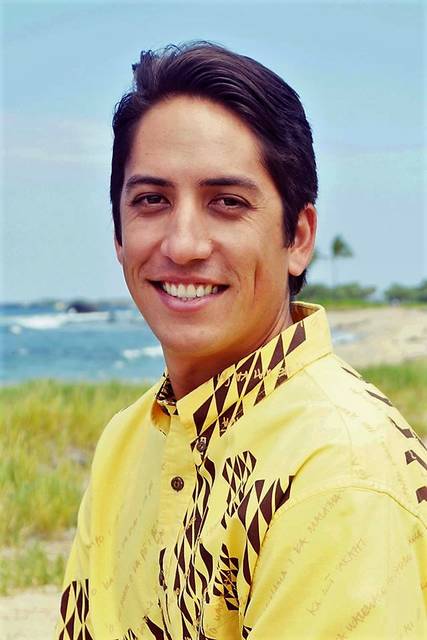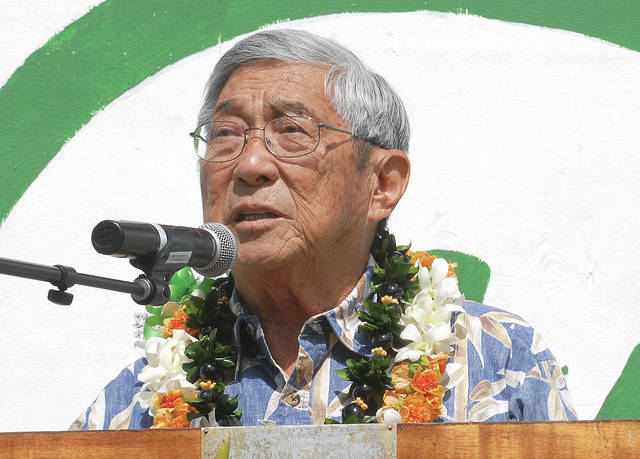On the heels of a tumultuous summer special session that raised the transient accommodations tax by 1 percent, the state’s local governments and Hawaii County Mayor Harry Kim are pushing for a bigger slice of the pie.
The Hawaii State Association of Counties, comprising county council representatives and mayors from all four counties, put a larger county share of the TAT at the top of their priority list for the regular legislative session that began Wednesday.
“Getting a fair share of the TAT revenues is still the main priority of the Hawaii State Association of Counties,” HSAC President Dru Kanuha, a Hawaii County Council member, said Wednesday. “The counties are working very hard to make sure that an equitable solution is worked out to benefit every resident and visitor of the four counties.”
Other HSAC priorities are liability protection for lifeguards, giving counties a small percentage of the conveyance tax to use for affordable housing, a tax credit to install fire suppression systems in one- or two-family residential units and additional ambulance service for Hawaii County and Kauai.
On Wednesday, Kim, preparing a presentation for the Senate Ways and Means Committee, said he also has a bigger TAT share on his priority list. The committee meets at 1:30 p.m. Friday to hear from the counties and mayors.
“We went from 8 percent (of the total tax) to 4 percent,” Kim said. “I’m going to tell them we had to raise our property tax.”
Kim said affordable housing and homelessness are huge concerns as well, and he’s optimistic the Legislature will focus on these issues.
“I’ll tell them about the growing gap between the haves and the have-nots and the problems that’s causing,” Kim said.
Those concerns should fall on sympathetic ears in the House.
House Speaker Scott Saiki, in his opening address to the Legislature on Wednesday, included affordable housing and homelessness as major priorities.
“There are two painfully obvious challenges that confront our state — the lack of affordable housing and the increasing homeless population,” Saiki said in prepared remarks. “There is a huge gap between what our working families are able to pay and the cost of building new housing in Hawaii.”
Senate President Ron Kouchi also emphasized solutions for affordable housing and homelessness. But he also stressed education as a big priority.
“Creating opportunities for each and every child in this state to close the income gap and to be able to reach for the stars and realize their dreams,” Kouchi said in a press release stating his priorities.
The transient accommodations tax, often called the “hotel tax,” is a 10.25 percent surcharge on the price of all rentals and lodging of less than 180 days. It was raised during the special session to bail out Honolulu’s foundering rail project.
The TAT was created to help deal with tourist impacts. A percentage was passed on to counties because they’re the ones paying for police, firefighters, parks and other infrastructure impacted by tourists. The rest is split between the state and several Oahu projects.
The counties’ amount was capped during the Great Recession, with the intent to return to the original formula once the economy stabilized, according to records. That didn’t happen.
The counties now share $103 million of the approximately $450 million collected each year, with $19.2 million allocated to Hawaii County.
HSAC is seeking to change that to a percentage share, so counties get more as collections rise.
A working group tapped by the Legislature and endorsed by HSAC recommended the counties get 45 percent of the collections to the state’s 55 percent. That could mean as much as $200 million for the counties to share, an amount that would increase as tourism increased.
Email Nancy Cook Lauer at ncook-lauer@westhawaiitoday.com.





Glad Dru is leading this, because Harry Kim and Andy Levin got squat last year. Oh wait, Harry didn’t even show up at the Capitol – was Will Okabe.